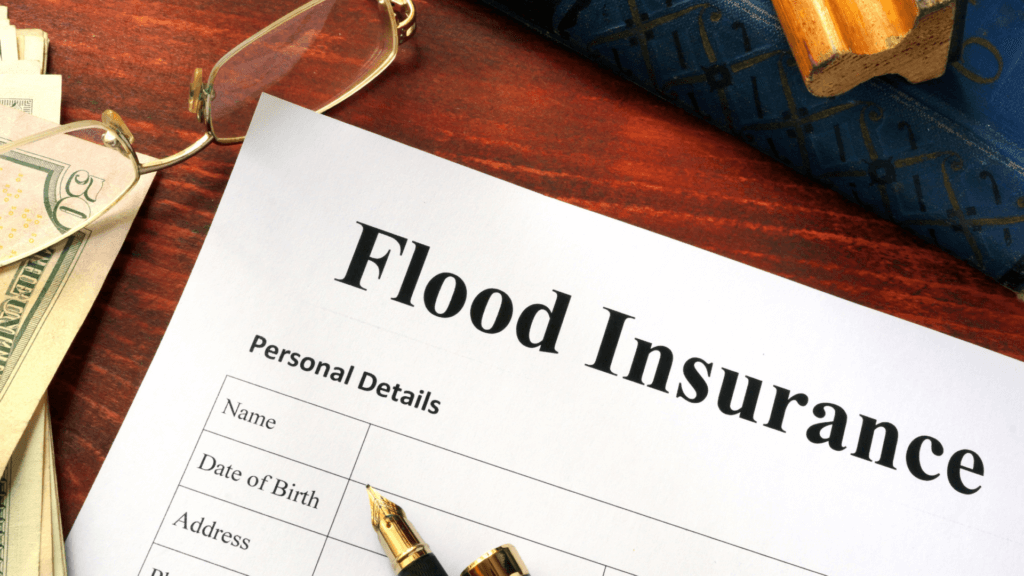
Owning a commercial property can be incredibly fulfilling; however, just like owning a home, it also comes with many challenges, one of which is dealing with water damage from floods.
Damage from a flood can be detrimental to a business’s operations. While many different types of damage can be covered by standard commercial property insurance policies, coverage for flood events is most often excluded and must be obtained in a separate policy. Understanding what can be covered under a Texas flood insurance policy, and the ways to prevent and spot potential water damage can aid commercial property owners in avoiding a potential catastrophe.
Texas Flood Insurance Coverage
One of the most daunting and costly types of property damage is flooding. The impact of a major flood event can result in mold and electrical damage, while also causing severe structural damage to a commercial property. Flood waters often move incredibly rapidly, adding pressure to the sides of a building’s interior, weakening the structure of the property, and at times completely separating it from its foundation. According to a recent CBS News article, between 1980 and 2023, there were 42 separate flood events in the U.S. that cost $1 billion or more in damage. This damage is anticipated to only increase over time, especially impacting coastal areas like Texas, Florida, and Louisiana which are often prone to flooding from hurricanes.
With the overall cost that flood damage can cause to commercial properties, it’s no wonder why many automatically assume that flood damage is covered under standard property damage policies. Unfortunately, this is not the case, as flood damage can only be covered through two means: the Federal Emergency Management Agency’s (FEMA) National Flood Insurance Program or by obtaining private flood insurance:
- The National Flood Insurance Program (NFIP): Under the NFIP, a flood is defined as a general and temporary condition of partial or complete inundation of two or more acres of normally dry land area or two or more properties. The program is designed so that floodplain management and flood insurance complement and reinforce one another. Through the NFIP, the maximum building coverage provided can be up to $250,000. If the replacement cost for the property is more than $250,000, policyholders will need to purchase an excess coverage policy in order to be fully insured.
- Private Flood Insurance: Private flood insurance can be obtained through various private insurance companies rather than the federal government. In certain cases, commercial property owners will choose to purchase private flood insurance over purchasing coverage through the NFIP due to the NFIP’s coverage cap of $250,000. Private flood carriers provide up to $1 million in coverage, with some policies offering even higher limits.
What Does Flood Insurance Cover?
While the NFIP and private flood insurance markets are separate from one another, the policies often cover the same types of damage. Generally, commercial flood insurance policies will cover damage to the property itself as well as equipment, appliances, and personal items within the structure, including:
Building Coverage
- Electrical and plumbing systems
- Furnaces and water heaters
- Appliances
- Permanently installed carpeting
- Permanently installed cabinets, paneling, and bookcases
- Windows
- Foundation walls, staircases, and anchorage systems
- Detached garages
- Fuel tanks, well tanks, and pumps
- Solar equipment
Contents Coverage
- Personal property
- Furniture
- Curtains
- Portable and window air conditioners
- Currency, precious metals, and valuable items
What Doesn’t Flood Insurance Cover?
When it comes to insurance coverage, a “flood” typically refers to water overflowing from rivers or streams, storm surges, snowmelt, blocked storm drainage systems, broken dams, or other causes of excess water on land that is normally dry. The NFIP requires the excess of water to affect at least two acres of land or two or more properties. This means water filling your business due to plumbing issues or a burst pipe, is not considered flooding and will not be covered.
Commercial flood insurance does not offer coverage for any business property that is outside of the primary insured structure or for commercial vehicles. Flood coverage provided by the NFIP also does not cover financial losses due to business interruption. However, private insurers may offer business interruption coverage among others additional coverages that the NFIP does not.
Signs of Water Damage in a Commercial Property
Although seemingly harmless, water can be incredibly destructive. As many have seen with major flood events like Hurricane Harvey, Hurricane Ida, and Hurricane Idalia, extensive water damage can cause major complications for properties that can leave them unusable. Even the most well-built structures can suffer the effects of water damage at some point in time.
With this in mind, commercial property owners should consider the following signs when determining if water damage is present:
Apparent Physical Changes
In most cases, physical changes to a property are apparent when water damage occurs. Business owners may notice dark watermarks on the ceiling that could indicate a roof leak. If a roof leak is present and left untreated, the area can grow and appear bloated, flaky, or even warped. This type of damage can also be present in the walls.
Flooring can cause water damage as well, particularly after a flood or if a building has a sprinkler system in place. A leak from above can easily turn into a workplace hazard and even damage the sub-flooring if left undetected or untreated for some time.
The Presence of Mold
If there is a leak in a commercial property that has been undetected or untreated, mold is likely to also be present. This is because constant moisture can create the ideal environment for mold to grow. In commercial properties, mold can most often be an issue in the ceiling or floors if there has been sitting water after a flood, a burst pipe, or even a roof leak.
Often, mold can be seen and detected through scent. Musty odors inside a property can also point to the formation of mold. This is especially important because as mold grows over time it can cause structural damage to a building and will need to be torn out and treated and / or remediated by a professional.
Apparent Increase in Utility Costs
Regularly reviewing a commercial property’s monthly utility bills can indicate the building leaks. If it is apparent the water bill has drastically increased but a cause cannot be determined, it could be an undiagnosed leak.
In the event a commercial property owner cannot determine where in the building the leak is coming from, they should contact a plumber. Plumbers have the knowledge and tools to safely examine a property to locate a leak and provide a solution.
The Presence of Rust
If a commercial property owner notices that rust is present on equipment or a building’s air conditioning (AC) units, it is likely due to water damage. This can be a sign of an old leak in the area that was never addressed. Property owners should consult with a professional to determine the extent of the damage.
How to Prevent Commercial Water Damage
Having water damage can be incredibly stressful and costly to deal with; however, taking the necessary steps to prevent it can help businesses avoid the headache. Some tips for preventing commercial water damage include:
Having a Preventative Maintenance Plan
Having a preventative maintenance plan in place can help keep a commercial property safe and secure from water damage. This includes regularly inspecting areas that are prone to leaks and water damage, such as a building’s roof and plumbing system. Different portions of the property should be inspected at different intervals. For instance, doors, windows, and gates should be examined each year, while the roof can be checked and coated every five years to prevent damage.
Conducting Regular Water Damage Inspections
While conducting regular inspections for water damage can be time-consuming, it is a lot more beneficial financially than having to go through the process of restoration. Having professionals inspect the property at least once a year can help detect leaks by monitoring humidity using spot sensors.
Reviewing Applicable Insurance Policies
Insuring property against water damage can be incredibly tricky. While some forms of sudden or accidental water damage can be covered, damage caused by a flood or natural disaster is often not covered. Because of these discrepancies, commercial property owners must purchase additional flood coverage in addition to having a standard commercial property policy. Consulting with a commercial insurance claim attorney can help ensure all aspects of the property are covered in the event water damage occurs.
Commercial Property Insurance Claim Attorneys
Water damage from a flood can be incredibly disruptive to a business and leave owners with no means to turn a profit for a substantial period. Despite having the proper coverage in place to mitigate the cost of such detrimental damage, insurance carriers notoriously utilize bad faith practices to undermine the claims process. At Raizner Slania, our experienced insurance coverage attorneys understand the many ways carriers attempt to delay, underpay, and/or deny valid commercial property damage claims. If you are dealing with an insurance provider that has failed to pay your commercial property water damage claim, we can help.


